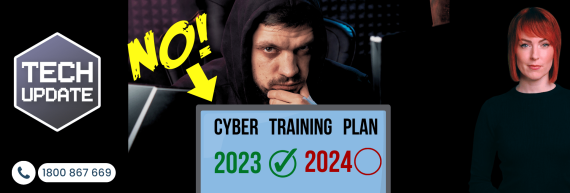To help businesses simplify their communication strategy, UCaaS provides the necessary infrastructure, apps, and resources through a cloud-based service delivery architecture. The term “Unified Communications as a Service (UCaaS)“ refers to a specific kind of cloud-based service delivery model that provides the infrastructure, applications, and resources essential for businesses to unify their multiple forms of communication.
What is Unified Communications as a Service (UCaaS)?
Unified Communications as a Service (UCaaS) is a cloud-based service that helps businesses and organisations communicate and work together by giving them tools like voice, video, messaging, and conferencing. UCaaS delivers through a subscription model, in which the provider manages and maintains the hardware and software infrastructure needed to support the communication services.
UCaaS can work well for businesses of all sizes. Still, it works exceptionally well for small and medium-sized businesses (SMBs) that may need more resources or expertise to manage their communication infrastructure. By giving these services to a UCaaS provider, SMBs can focus on their primary business tasks and still use the latest tools for communication and teamwork.
Why is UCaaS important for businesses?
Even though most businesses have been using some parts of cloud communications, UCaaS is a key solution for businesses looking for streamlined enterprise communications solutions.
- Scalability: Among the numerous advantages of Unified Communications is that it is easy to scale up or down as necessary. This makes it easy for businesses to adjust to growth or changes in the market. As a business’s needs change, adding or removing users, changing service levels, or adding more features is easy.
- Cost savings: By outsourcing their communication infrastructure to a UCaaS provider, businesses can reduce their upfront costs and avoid the need to purchase and maintain expensive hardware and software. In addition, UCaaS can help businesses reduce their ongoing communication costs by providing features such as voicemail-to-email and call forwarding.
- Improved security: Most Unified Communications providers have robust security measures to protect their customers’ data privacy. This can include encrypting data, having secure data centres, and using more than one way to log in. Businesses using Unified Communications can take advantage of these advanced security measures without buying them themselves.
- Increased mobility: With UCaaS, employees can use their communication and collaboration tools from any internet-connected device, anywhere. This can be especially helpful for businesses with remote or mobile workers because it lets them stay in touch and get work done while they’re out and about.
- Customisation: Many UCaaS providers offer different ways to customise their services, so businesses can make them fit their needs. This can include custom integrations with other business apps, call routing, and branding options.
- Disaster recovery: Most Unified Communications providers have robust disaster recovery plans to ensure that their customers’ communication and collaboration tools are still available during an outage or other disaster. This can give businesses peace of mind, knowing that their communication infrastructure will always be available.
Who needs UCaaS, and When?
A CCaaS solution is helpful for omnichannel businesses whose customer service is mission critical.
UCaaS is the best choice for businesses that need a more advanced way to communicate across multiple locations, devices, and platforms. Unified Communications (UCaaS) saves time and money without sacrificing security, productivity, or accessibility.
- Perform in environments with a lot of change, where employee and business communication needs are often and unpredictably improved or reduced.
- If you need to use the newest communication tools to stay competitive
- Which digital-first businesses need to be able to manage security holes quickly and expertly
- If IT resources are already thin and are focused on more critical business operations
- For a growing number of employees, partners and customers are remote, dispersed, and mobile.
Types of UCaaS Architectures
When businesses use Unified Communications As-a-Service (UCaaS), they get several uses. For example, they can spend little or no money on the architecture’s capital, tools, management, support, or maintenance because the service provider takes care of it all.
There are two main architectures to choose from when setting up UCaaS for your business: single-tenancy and multi-tenancy. Let’s examine them in detail and see what they are:
1. Single-Tenancy Model
Under this strategy, service providers construct a proprietary software platform that can easily connect with the client company’s in-house software to suit their consumers’ demands. Each client receives a custom-tailored, one-of-a-kind software application from the vendor, yet everyone utilises the same physical infrastructure. In this model, each customer’s data is kept separate, which promotes security by preventing outages for one client from impacting the data of other customers.
Single-tenancy architecture is suitable for ensuring data protection, reliability, and simple backup and recovery. It is more adaptable and safer. However, a single tenancy is more costly since each client is often responsible for the expense of software upgrades.
2. Multi-Tenancy Model
A multi-tenancy Unified Communications approach indicates that more than one client shares both the software and the hardware segments of the service. Clients may customise certain aspects of the programme, such as the user interface colour scheme or the business rules. But not the underlying software or its functionality. The service provider acts as the shared host for the whole system, so companies can get updates immediately and stay at the forefront of technology of features.
The multi-tenancy model gives vendors more support and is a cost-effective way for companies to cut capital expenditures without giving up essential features like virtualisation and remote access.
So, although there are fewer ways to customise it, the multi-tenancy model is prevalent. This kind of Unified Communications Secures authentication by managing all communication devices and apps from one place. It is economical, requires little maintenance, has better vendor support, and allows automatic upgrades.
3. Hybrid Unified Communications as a Service (UCaaS)
Companies can also use what is called a hybrid UCaaS approach, which is a third model. This works well for people who want to keep some parts of their UC system’s on-premises and others in the cloud. When an organisation uses a hybrid UCaaS system, it can keep key components on-premises for reasons of security or management and move other applications to the cloud. This allows them to find the right balance between security, agility, scale, and budget. Choosing the suitable deployment model depends only on what the company needs, how it works, and the situation.
Advantages – Unified Communications as a Service (UCaaS)
More and more businesses are shifting to a fully remote or hybrid workforce, so they need a secure, flexible way to work together and talk to each other. UCaaS, which stands for “Unified Communications as a Service,” meets your needs and goes above and beyond what you expect. Let’s look at a few best things about UCaaS.
1. Remote Work Support
The year 2020 demonstrates how important it is to take things as they come and change quickly. It showed how our current ways of talking could be better. With Unified Communications, your conversations can take place in the cloud for always accessible. With this cloud-based solution, you and your team can always stay in touch, no matter where you are.
Even so, how? UCaaS provides a single place to talk, share files, have online meetings, and send text messages. Your employees will always have your full support, whether in the boardroom or the family room.
2. Maintenance Excellency
Customers love the fact that they don’t have to do any maintenance. With UCaaS, you don’t have to deal with the headaches and trouble of setting up, implementing, and maintaining your communication system. We take care of all of that for you as your UCaaS provider.
You can rest easy knowing that not only are experts taking care of your communication system, but they also love giving you the best service they can.
3. Security with Unified Communications
We all agree that keeping your phone calls private is a crucial thing to do. Because of this, we take extra care to keep your information safe. We do this by keeping your records (call logs, usage data, etc.) in our highly secure Tier III data centre, encrypting them with military-grade encryption, and only letting authorised users into the system.
With Unified Communications service, you can talk to people securely anytime from anywhere.
4. Cost Effective
In order to save money, 84 percent of IT professionals are moving more work to the cloud. If you switch to the cloud, you can join this large group of people. By moving to the cloud and using UCaaS, many of our customers were able to cut their IT costs by 30–50%.
5. Enhance Efficiency with Unified Commnunications
With Unified Communications, you can set up and use your communication infrastructure faster, easier, and all around better. With cloud-based communication, updates no longer have to be done by hand. But what does that mean for the IT team you work with? This means they will save time taking care of your communication system all the time.
With cloud-based communication, all updates are done automatically and sent out in small groups to be implemented faster without causing problems for end users. Now, your end users can stay up-to-date, and your IT team has more time to keep moving your business forward.
Why it Matters?
By incorporating communication technologies, workers can do multiple jobs at once and do them quickly. This keeps workers motivated and boosts production, which is introductory for a business to stay in business. By moving all of their communication channels onto a single platform, businesses can improve teamwork and productivity while lowering communication costs. With TOS Unified Communications services and a complete communication suite, your company can have full-suite conversations in the future.
Well, at TECHOM Systems, this sounds too promising to be true: a cloud-based communication solution that covers all your communication needs and gives you the security and flexibility you want. But we can surely tell you that it is accurate and the answer to your business needs.
Schedule a call with our Solutions consultant today to see for yourself how Unified Communications can help you!
Give our experts a call at +61 3 9005 6868. Email us at hello@techomsystems.com.au with any questions you have about UCaaS.
With TECHOM Systems, you will experience how great Unified Communications as a Service (UCaaS) really is…














